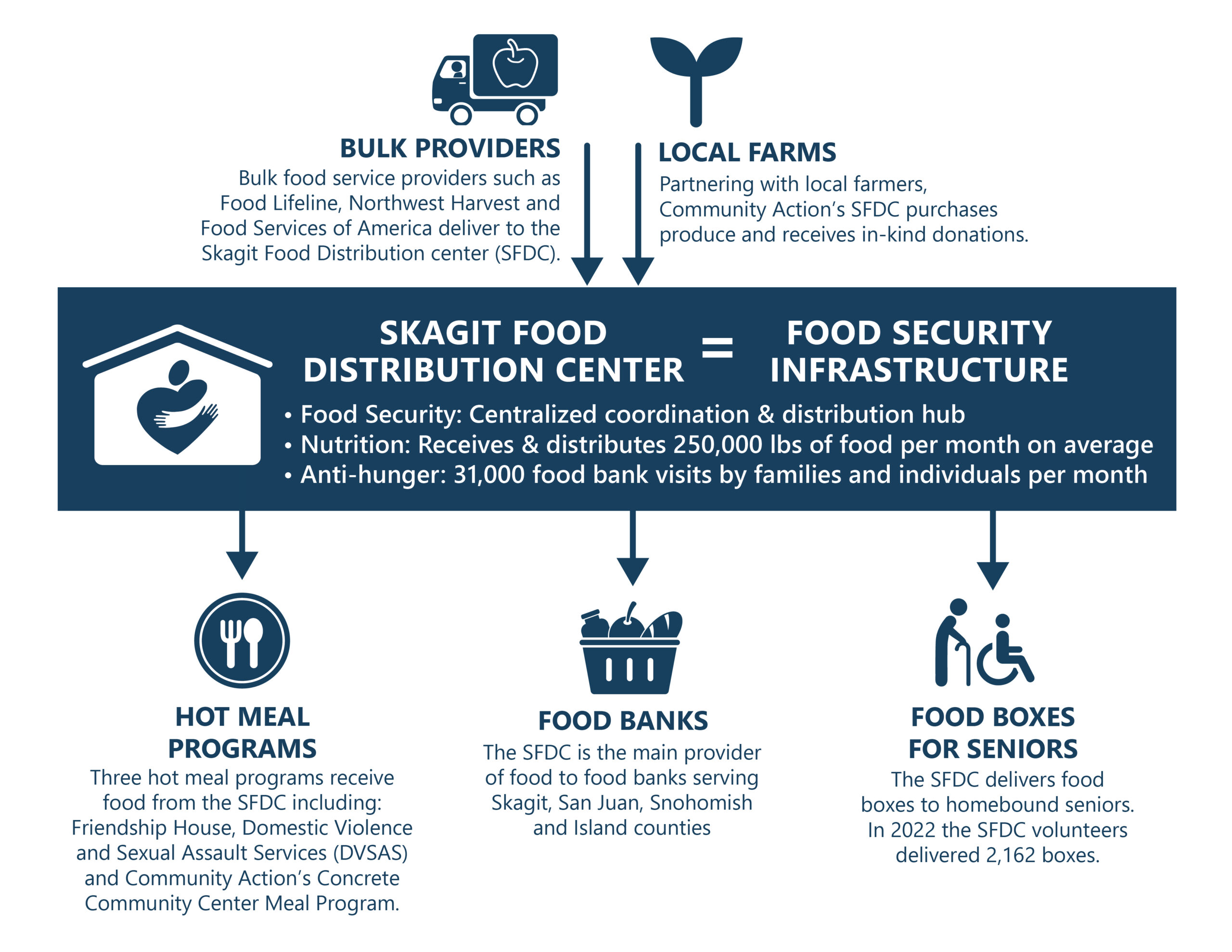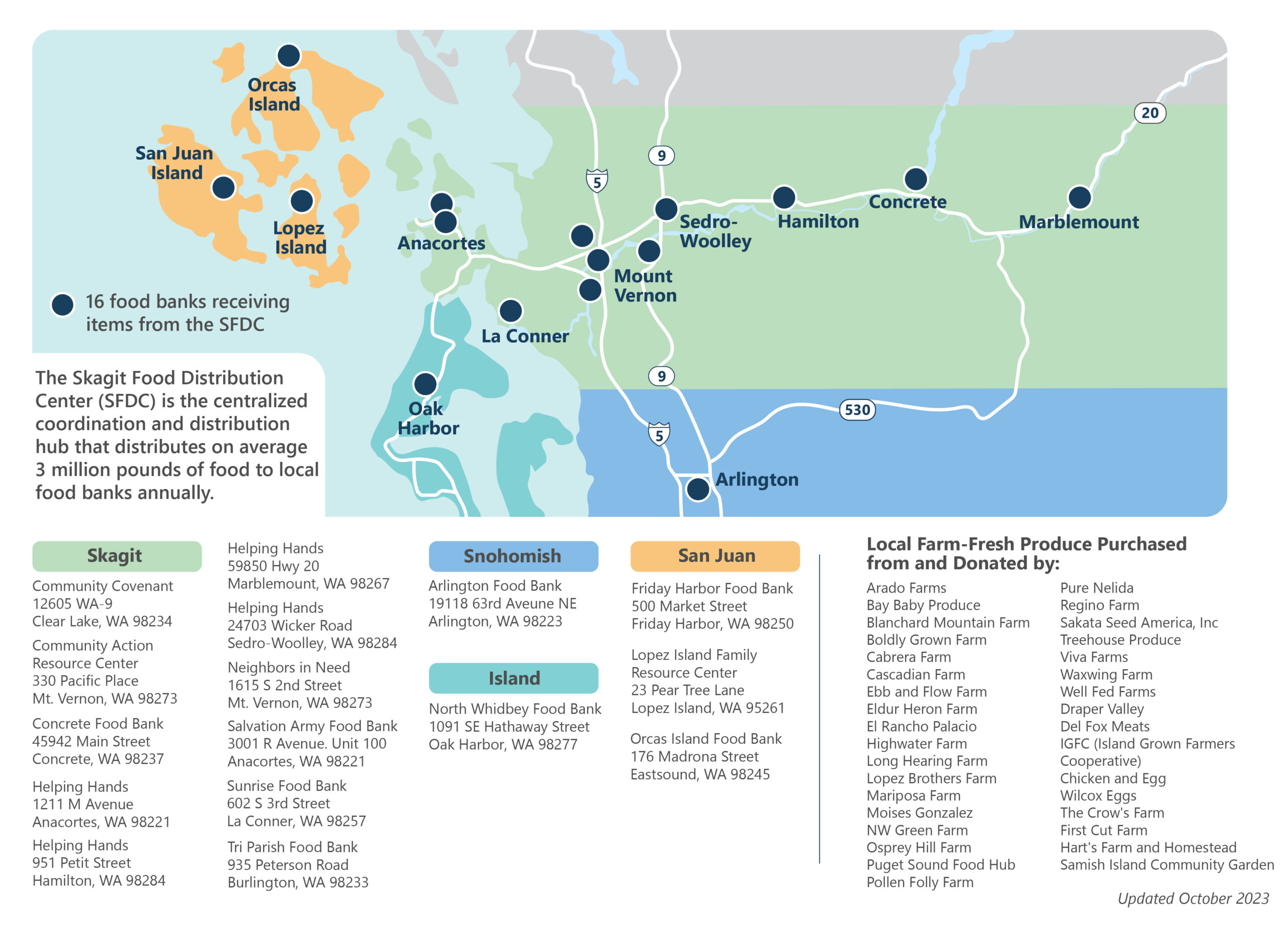The Skagit Food Distribution Center, a partnership between Skagit County and Community Action, was established in 2006 as our county’s first ever centralized Food Bank Distribution Center.
The centralized warehouse allows the county’s food pantries and hot meal programs to effectively work as partners, streamlining services, saving time and money – and it promises to yield more food for our county’s hungriest families.
Why is the SFDC needed?
Simply put, we’ve been missing out on millions of pounds of food per year! The lack of a centralized facility meant individual food pantries were on their own to collect, transport and store food. The centralized facility fosters cooperation and also makes it easier for those interested in doing food drives or otherwise supporting anti-hunger work to benefit all food pantries. The Distribution Center also successfully increases the amount of high quality local produce reaching food pantries through relationships developed with local growers. These foods are welcomed options to families who in the past have had limited access to fresh food products.
Skagit Food Distribution Center
How It Works


Beside central food bank storage and distribution, how else is this facility used?
- As a central location to hold food and fund drives.
- As a gathering point for anti-hunger coalitions, food pantries and school districts, hospitals, nutrition programs, gleaners, farmers and others interested in ending hunger.
- To help support local agriculture. Our Distribution Center brings fresh, locally grown produce to food pantries, meal programs, and other anti-hunger initiatives.
- As a coordination hub for the Commodity Supplemental Food Program, providing monthly food boxes to low-income seniors (60 years+).
Commodity Supplemental Food Program Sign Up
The Commodity Supplemental Food Program (CSFP) works to improve the health of low-income persons at least 60 years of age by supplementing diets with 30 pounds of shelf stable foods like fresh and canned produce, cereal, juice, rice or pasta, milk, and protein. In addition to the shelf stable box, the CSFP program now delivers a 15 pound box of fresh fruits and vegetables. Our friendly volunteers deliver to all of Skagit county, with multiple delivery days available.
To qualify for this program you must be a Senior that is at least 60 years old and have an income limit of $1,632 for a single person or $2,215 for 2 people. If more than 2 people live in a household, the income limit will be higher.
Community Action’s Skagit Food Distribution Center serves as a coordination hub for the Commodity Supplemental Food Program. For more information or to sign up for this program you can call (360) 410-5023 or submit the form below.
Where does the food go?
The Skagit Food Distribution Center is a unique community asset, providing approximately 70-80% of the food available through area food banks, and benefiting thousands of community members annually. In 2022, the SFDC distributed 3 million pounds of food through local food banks, serving thousands of individuals and families across Skagit, Snohomish, Island and San Juan counties and delivered 2,162 boxes of nutritious and staple foods to homebound seniors.

Want to hold a food or fund drive?
Complete this short form and we will contact you to help organize your food or fund drive!
Need Food?
Community Action Skagit can provide many resources for individual and and families in need of food.
